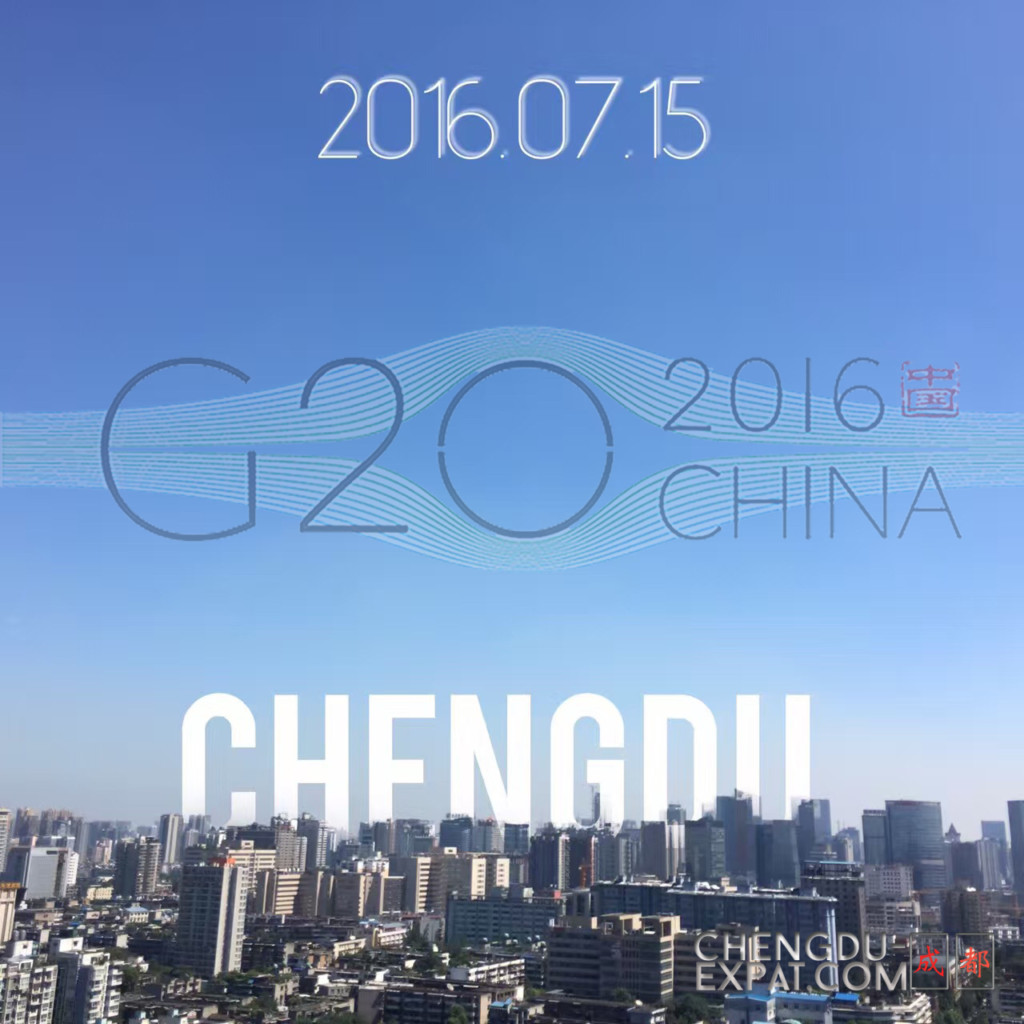As the city woke up to uncharacteristically beautiful blue skies last month, local government officials and traffic management officers were busy making preparations for the G20 Finance Meetings in Chengdu which took place from 21-24 July 2016. Finance Ministers and Central Bank Governors and Deputies gathered in the heart of the city to discuss important matters, ahead of the main G20 Summit in Hangzhou in September.
Chengdu prides itself on its reputation for being a global city, and it’s a reputation that is deserved. Residents are used to seeing their fair share of foreigners around town, and things got a whole lot more international during the two weeks when G20 was in town, as foreign diplomats and finance ministers descended on the ‘Du for the first ever G20 meeting to be held in the city.
The schedule for the meetings was as follows:
July 23-24, Chengdu: Finance ministers and central bank governors
July 22-23, Chengdu: Finance and central bank deputies
The end of increased metro security checks and a return to grey skies on July 25 marked the end of Chengdu playing host to the G20 Finance Meeting. Among the agenda items discussed during the meeting were global terrorism, the growing refugee crisis, the failed coup in Turkey and, of course, Brexit.
Official communiques from the G20 meeting of central bankers and government officials revealed that the recent British EU Referendum result had added to the feeling of ‘uncertainty’ in the global economy. However, it’s not all doom and gloom for the global economy: officials in Chengdu insisted that G20 countries were “well-positioned” to tackle any future economic problems caused by Brexit.
Concerns among certain G20 members about slowing growth in China seemed to fade somewhat into the background at the meeting in the face of other more pressing global concerns. The Chinese government is reported to have begun a transition towards using domestic consumption as an important driver of the Chinese economy, as opposed to relying mostly on exports.
G20 was created back in 1999 and consists of Argentina, Australia, Brazil, Canada, China, France, Germany, India, Indonesia, Italy, Japan, Mexico, Republic of Korea, Russia, Saudi Arabia, South Africa, Turkey, the United Kingdom, the United States and the European Union. Some guest countries and various international organisations were also invited to attend the G20 Summit.
With little information being released before the meeting began, the one thing that really got the city talking was the blue sky which had appeared above Chengdu. As with many other high-profile international events, China took various measures to try and decrease pollution levels before the events got underway. The government’s ability to clear up pollution in such a short space of time, and on such a massive scale reminds us that in China, if there’s a will, there’s a way!
As was to be expected with an international meeting of this scale, the city experienced various traffic and public transport restrictions. Chengdu residents dealt with traffic restrictions throughout the duration of G20, especially around central areas like People’s Road, Tianfu Avenue and Century City Road, as well as long lines for the metro security checks. The congestion was, however, a small price to pay for the prestige of hosting a G20 meeting (and for the blue sky of course).





